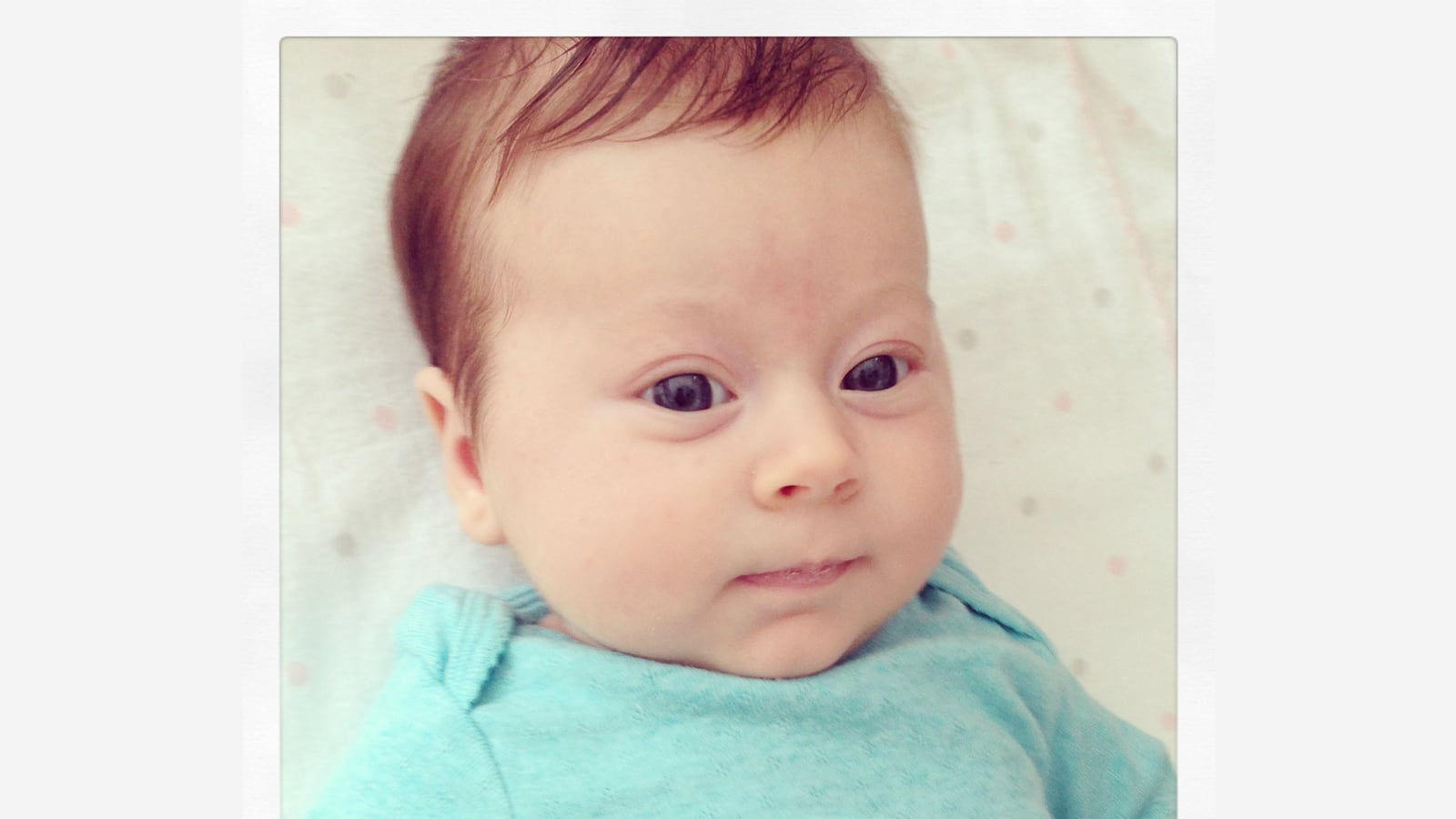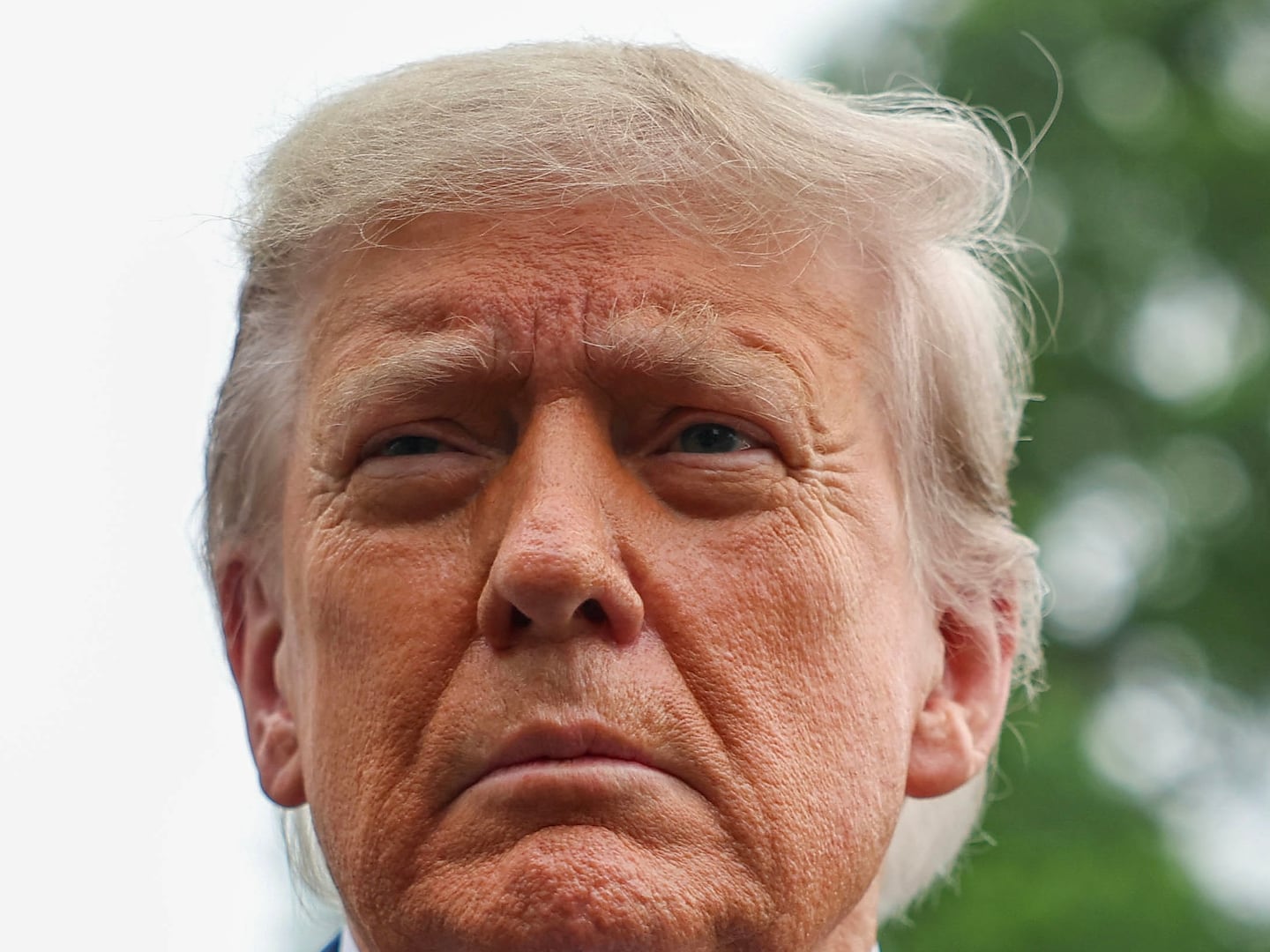Not all fathers do so well by their children as the poets do by theirs, and so it was with some measure of anxiety that I turned to poetry on April 29—the day my daughter, Julia, was born. By nice coincidence, one Irish versifier had witnessed the same terrifyingly joyous spectacle as I had just done, and on the same calendar day in 1957. In search of the right metaphor to describe parturition, he alighted imaginatively upon a jailbreak:
This mannikin who just nowBroke prison and stepped freeInto his own identity—Hand, foot and browA finished work, a breathing miniature —Was still, one night ago,A hope, a dread, a mere shape weHad lived with, only sureSomething would growOut of its coiled nine-month nonentity.
“Mannikin” here is deployed in its classical definition meaning “dwarf” or “pigmy,” not in the posable storefront sense. Nonetheless, the combined mood of liberation and menace is particularly well-caught, not least because the above stanza was put down by Cecil Day-Lewis, who was heralding into existence his son Daniel, future embodier of both Abraham Lincoln and Bill the Butcher.
This is my first Father’s Day as an object of celebration. And yet rather than rejoicing, I’ve been fretting about how best to get through all the other ones that await me without having them transformed into riptides of recrimination and resentment for a job poorly done. After all, my wife and I now count among a multitude of reckless inventors in that we can’t really know who or what, exactly, we’ve just brought into the existence. Is our little bug a moral innocent and intellectual genius now justly freed from the Alcatraz of non-being, or have we unintentionally swelled the ranks of reality starlets, cult leaders, data journalists, and investment bankers who had no right to slip the clink in the first place? All parents glimpse early signs of a budding Mozart, Einstein, or Pol Pot in their newborns, but is there really anything they can do about it?
As it happens, Day-Lewis is pretty good here, too:
Now like a blank sheetHis lineaments appear;But there’s invisible writing hereWhich the day’s heatWill show: legends older than language, glumHistories of the tribe,Directives from his near and dear—Charms, curses, rules of thumb—He will transcribeIn his own blood to write upon an heir.
The latest evolutionary psychology instructs that about 50 percent of our identity is predetermined, or at least heavily weighted, by the invisible writing of our genome whereas the other 50 percent is up to the directives of our near and dear; principally, the kind of society to which we introduce our offspring at a tender age and what they then assimilate from their fellow mannikins. (It may not take a village, as one presidential hopeful famously had it decades back, but the wrong sandbox will land you with the Duggars.)
Herein lies a problem of regression. I must now make choices for Julia on the basis of my education, religious upbringing (or lack thereof), and culturally inscribed mores—all factors, in other words, that were never really up to me but the results of choices that my own mother and father made on my behalf. And those choice were similarly the yield of the same unforgiving cycle. So if environmental conditioning is also somewhat on the hook to DNA, then aren’t parents even more culpable for how their kids turn out?
They fuck you up, your mum and dadThey may not mean to, but they do.They fill you with the faults they hadAnd add some extra, just for you.
Philip Larkin’s famous ode to childlessness, and the supposition behind it of perpetual generational ruin (it “deepens like a coastal shelf”), seems depressingly correct, until, that is, you consult the experts.
Wasn’t it I true, I asked Steven Pinker, that since we pass on our genes to our children, and our genes also help determine how we raise them—and the kind of company we let them keep—then the question of who we are is even more predicated on that which is wholly out of our control?
“It is,” the author of The Blank Slate: The Modern Denial of Human Nature emailed me back. “Though since the effects of genes on anything, including the selection of environments, are less than 100%, any particular effect will peter out over the generations (while new ones will make themselves felt).”
By way of reassurance, Pinker passed along Judith Rich Harris’s witty reply to Larkin:How sharper than a serpent’s toothTo hear your child make such a fuss.It isn’t fair; it’s not the truth.He’s fucked up, yes, but not by us.
“Parenting has been oversold,” Harris observes confidently in The Nurture Assumption: Why Children Turn Out the Way They Do, her pathfinding book in which that amicus brief on behalf of Larkin’s parents first appeared. “You have been led to believe that you have more of an influence on your child’s personality than you really do.”
This is very satisfying indeed to a nervous new papa, as is the fact that my blamelessness evidently began as soon as I became one.
According to The Happiest Baby on the Block: The New Way to Calm Crying and Help Your Newborn Baby Sleep Longer—a bestselling guidebook which actually draws on millennia of old ways to calm crying and sleepless newborns—all children are born a trimester too early and thus complete their fourth outside the womb. It all has to do with the size of a fetus’ brain, which is so large by the end of a nine-month gestation that the mother’s body must physically “evict” the child lest it get trapped in the birth canal. “Newborns have some abilities that demonstrate their readiness to be in the world,” Dr. Harvey Karp writes, “but these notwithstanding, for the first three months, our babies are so immature they would really benefit if they could hop back inside whenever they get overwhelmed.”
Day-Lewis’ penal metaphor, then, got it right in another crucial respect. We’re all sprung from the big house too soon and more than a little institutionalized, just like poor Brooks in The Shawshank Redemption. Except in lieu of a knife-carved farewell in the ceiling beam of her halfway house, we’ve opted for limitless wailing and a semi-permanent look of existential dread to express our discomfort.
And it’s precisely by evolving into the dominant species on the planet that man has found himself alone in wanting to draw out his stretch of hard time. Crying is a rarity in the animal kingdom for the simple, Darwinian reason that other species have to be born staunch realists, better equipped to engage the world as it is, and not as it should be, which is warm, wet, and dimly lit. Squirrel monkeys, for example, emit a modest “beeping” noise when they fall out of trees lest they alert hungry predators to their whereabouts with a louder sound—an enviable adaptation until one considers that a small human child going off like a microwave or drug dealer from the ’90s might be subject to even worse depredations than diaper rash.
Homo sapiens is therefore the victim of a long, self-perpetrated con. A newborn’s fits of terror and distress, and the emotional responses these elicit from her parents, are almost certainly why the nurture assumption gained such popular traction over the last hundred years via Freudian theory, Dr. Spock and the multibillion-dollar child-rearing industrial complex they both midwifed (so to speak). The truth is, we’re not really imprinting ourselves on our children half as much as they’re imprinting themselves on us. And the mark lasts all the rest of our lives. Have you ever met a squirrel monkey worried about getting his kid into an Ivy League school?
Move further away from our immediate evolutionary ancestry and this fact makes itself even more apparent. You’ll no doubt have seen the YouTube video of the mother elephant giving birth all by herself: no nurses, epidurals or doulas here, thank you. Even in a state of emergency, with her baby born not breathing or moving, she calmly kicks and tugs at it with her trunk, stirring it to its first gasps of oxygen and movement. No big deal. Then, without the slightest hint of trauma or discombobulation, junior stands up and up trots off behind his mom as if he’s been doing it all his life, which I suppose he has been. There’s a conspicuous absence in the video, however. No dad. “Where is he?” I humbly inquire of my wife. “He’s unnecessary,” comes the reply.
Could have been worse, JuJuBee. Could have been worse.






